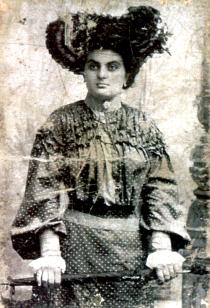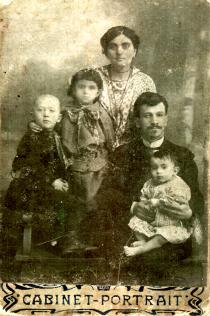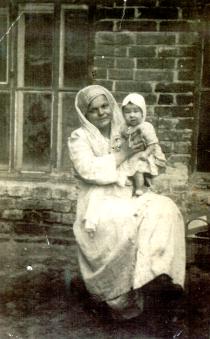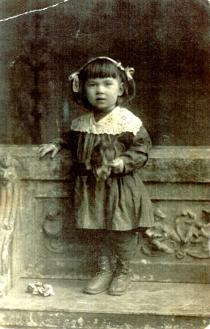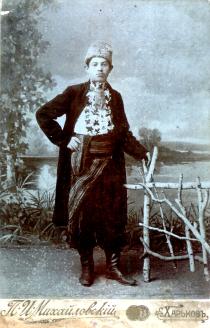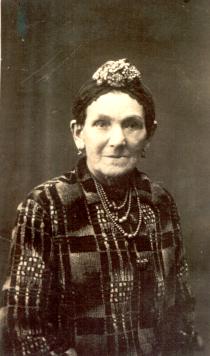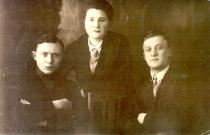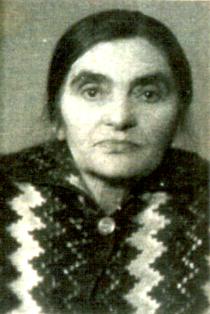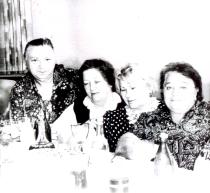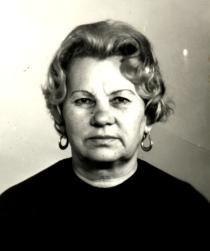This is my mother, Rosa Gliena. This photo was taken in M. Frankovich photo shop in Warsaw in 1904. My mother happened to visit Warsaw where she met her future husband, my father.
My mother Rosa, was born in 1887 in a small Lithuanian town of Ponedele. My mother told me it was a very small town and the majority of its population was Jewish. There was a synagogue in the center: a plank rectangular building with an upper tier for women. There was a one-storied brick building across the street from the synagogue: a Jewish bank. Most of the buildings in the town were made of wood. Jews were craftsmen in their majority: tailors, shoemakers, bakers or merchants. In their Jewish neighborhood in her town Yiddish was the language they spoke in families and sang songs in Yiddish, so of course, it was my mother's mother tongue. My grandfather was a tailor, his clients spoke Russian to grandfather when they came to make orders so my mother picked up this language when she was a child. Many residents in Lithuania spoke German and my mother picked up this language as well. In this way my mother that had no education and never studied, could only write her signature and read a little, could also speak a few languages. My mother rarely recalled her childhood in this small town. She liked talking about fairs on Christian holidays and colorful performances. There was no religious or national segregation and people enjoyed these gatherings and had lots of fun. This was probably the only entertainment in this small town.
My mother's parents died in the early 1900s. After that my mother had a small amount of money that she decided to spend on traveling. In early 20th century it was common for young people to travel to European countries. They formed groups (most often these were professional groups: of teachers, doctors or post office employees) of young people that had common interests, etc. There were Jewish groups of young people that were fond of traveling. These tours were not so costly. My mother recalled their tour to Germany. They stayed in inexpensive hotels in Bremen, Munich, Dresden and toured these towns. They also went to Great Britain. My mother told me that when they went to London they were unaware of the rules and customs in this city. One of them was that if a young girl went out with her head uncovered it meant that she was a girl of easy virtue and they might take her to a brothel. When my mother heard about it she bought a little hat. My mother even thought of staying in London and getting a job of a housemaid, shop assistant or seamstress. She didn't feel like going back to her small town. She liked many things about this huge city, but she couldn't find a job and besides, she became sickly due to the climate: frequent fogs and dampness. She had splitting headaches and gained migraine that she suffered from for the rest of her life. Rosa Meyerovich had to leave London. She was going back via Warsaw [before 1918 Warsaw was a part of the Russian Empire]. My mother was a tall, stately and pretty girl with big hazel eyes. She liked to dress according to the fashion. She had beautiful black hair that she liked to arrange in a popped manner. She also had a beautiful voice and she liked singing. She sang Jewish songs in Yiddish and popular songs in other languages. One couldn't help being attracted by such girl. My mother met a young shoemaker in Warsaw that happened to be Samuel Gliena, a Jew. He came from a small town near Warsaw. I don't remember its name.

